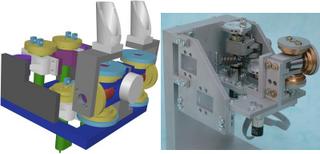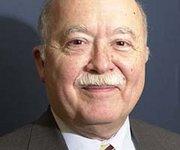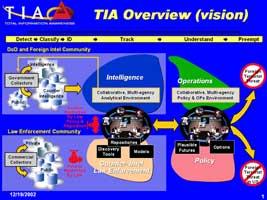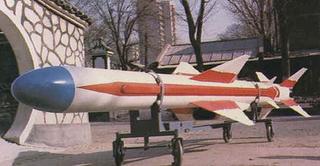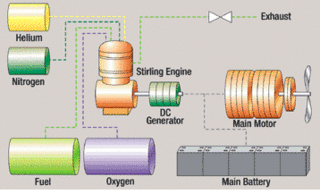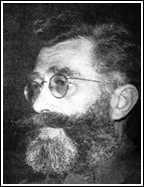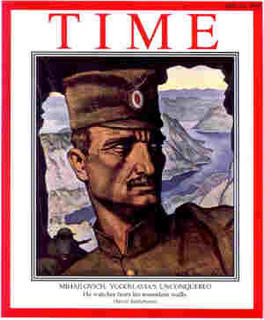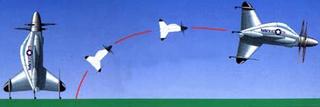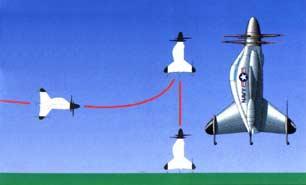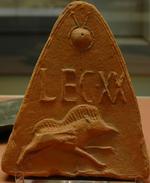This is coolbert:
Ever since the end of World War Two [WW2], it seems that an endless stream of books have been written regarding the sneak attack of the Japanese at Pearl Harbor [7 December 1941]. The attack that brought the U.S. into the war.
It has long troubled many that the Japanese
WERE ABLE to attack without warning and do so successfully in a manner that was at the time astounding to the average citizen.
What went wrong??
Why was our fleet not on alert??
What happened or
did not happen that allowed this attack to occur??
This is the type of questioning that has been asked over and over. And asked and purportedly answered by a host of eminent and respected historians of the highest caliber.
Perhaps
the most contentious accusation made regarding the Japanese attack is that President Franklin Roosevelt
HAD to have known that an attack was going to take place. That he did
NOTHING and WANTED the attack to take place
AND succeed. So as to have a strong pretext to enter the war on the side of England and fight Hitler, who Roosevelt felt was the main enemy.
Partisans of Roosevelt, and there are many, call this sort of accusation mean-spirited politics and unfair character assassination of the lowest order.
Those highly respected and eminent historians have looked at this angle [Roosevelt knew the attack was going to occur] for some time now. And I think the
general consensus of opinion runs along these lines:
"well, the belief of Roosevelt and his advisors was that in the days just prior to December 7th,
SOMETHING was going to happen. The Japanese
WERE going to make an attack.
BUT, NOT on Pearl Harbor. The Japanese attack would occur southward, towards Malaya, the isthmus of Kra, the Philippines, and the Dutch Indies. Pearl Harbor
WAS NOT a target for the Japanese. Furthermore, in the wake of the attack on Pearl, in hindsight, the fault for American failure was
NOT Roosevelt's."
Blame rather:His subordinates for lack of vision.
The
ineptness of Admiral Kimmel and General Short [American commanders in Hawaii].
Poor, faulty, and undisseminated intelligence, not coordinated."
BUT, DON'T blame Roosevelt. He
WAS above the fray."
This, again, seems to be the consensus opinion of the "experts".
IS this consensus correct?
IS something being overlooked?
I leave this for the reader to decide for themselves, based upon the following.
A
transcript of an intercepted [by the Germans], supposedly "secure" radio telephone conversation between Roosevelt and Churchill in the ten days prior to 7 December.
[You will recall my blog that mentioned how the Germans were able to read this supposedly "secure" radio telephone traffic].
This material I came across quite by accident. I was handed used copies of a magazine called KTB. This is the publication of an international organization called "Sharkhunters International". A group of enthusiasts dedicated to writing an honest history of the German U-Bootwaffe [U-Boat force]. KTB # 144 [Volume 18 January 2000 Number 1] contains an article that if true [I am attempting to verify the veracity of the article],
DOES answer once and for all the question of
what Roosevelt knew in advance of the Japanese attack on Pearl Harbor and
when he know it. Suggests,
NO, does not suggest,
SAYS that President Roosevelt knew unequivocally, without any question, with great precision, the time and place of the big Japanese move in the pacific [Pearl Harbor, 7 December].
The following is extracted from the KTB magazine article:
--------------------------------------------------------------------------
Secret State MatterNr: 321/41
Time: 26.11/41
Hour: 13.15
Conversation participants:
Franklin Roosevelt [FDR] & Winston Churchill [WC].
In this conversation, Winston Churchill explains to Franklin Roosevelt about the Japanese action planned against America.
WC - I am frightfully sorry to disturb you at this hour Franklin, but matters of a most vital import have transpired and I feel that I must convey them to you immediately.
FDR - That's perfectly all right Winston. I'm sure you wouldn't trouble me at this hour for trivial concerns.
WC - Let me preface my information with an explanation addressing the reason I have not alluded to these facts earlier. In the first place, until today, the information was not firm. On matters of such gravity, I do not like to indulge in idle chatter. Now, I have my hands, reports from our agents in Japan as well as the most specific intelligence in the form of the highest level Japanese naval coded messages
(conversation briefly broken) for some time now.
FDR - I felt that this what you were about How serious is it?
WC - it could not be worse. A powerful Japanese task force comprising six of their carriers, two battleships and a number of other units to include tankers and cruisers, has sailed yesterday from a secret base in the northern Japanese islands.
NOTE - this was Hittokappu Bay in the Kuriles.FDR - We both knew this was coming. There are also reports in my hands about a force of some size making up in China and obviously intended to go south.
WC - Yes, we have all of that (unintelligible) as are far more advanced than you in our reading of the Jap naval operations coded. But even without that, their moves are evident. And they will indeed move south but the force I spoke of is not headed south Franklin, it is headed east.
FDR - Surely you must be . . . will you repeat that please?
WC - I said east. This force is sailing to the east, towards you.
FDR - Perhaps they set an easterly course to fool any observers and then plan to swing south to support he landings in the southern areas. I have . . .
WC - No, at this moment, their forces are moving across the northern Pacific and I can assure you that their goal is the (break in conversation) fleet in Hawaii. At Perl Harbor.
FDR - This is monstrous. Can you tell me the nature of your intelligence without compromising your sources?
WC - Yes, I will have to be careful. Our agents in Japan have been reporting on the gradual (conversation broken) units. And these have disappeared from Japanese home waters. We also have highly reliable sources in the Japanese foreign service and even in the military.
FDR - How reliable?
WC - one of the sources is the individual who supplied us the material on the diplomatic codes that (conversation broken) and a naval officer who our service has compromised. You must trust me, Franklin and I can not be more specific.
FDR - I can accept this.
WC - We cannot compromise our code breaking. You understand this. Only myself & a few (conversation broken) not even Hopkins. It will go straight to Moscow and I am not sure we want that.
FDR - I am still attempting to . . . the obvious implication is that the Japs are going to do a Port Arthur on us at Pearl Harbor. Do you concur?
WC - I do indeed. Unless they add an attack on the Panama Canal to this vile business. I can hardly envision the canal as a primary goal, especially with your fleet lying athwart their lines of communications with Japan. No, if they do strike the canal, they will have to first neutralize your fleet.
According to this, the American president knew about the coming attack on Pearl Harbor ten days before it happened.FDR - The worst form of treachery. We can prepare our defenses in the islands and give them a warm welcome when they come. It certainly would put some iron up Congress' ass.
WC - on the other hand, if they did launch a bombing raid, given that the aircraft would only be of the carrier borne types, how much actual damage could they inflict? And on what targets?
FDR - I think torpedoes would be ruled out at the outset. Pearl is far too shallow to permit a successful torpedo attack. Probably they would drop medium bombs of the on the ships and then shoot (conversation broken) damage a number of ships and no doubt the Japs would attack our airfields. I could see some damage there but I don't think either an airfield or a battleship could sink very far. What do your people give you as the actual date of the attack?
WC - The actual date given is the eighth of December. That's a Monday.
NOTE - Apparently both Churchill and Roosevelt forgot that Japan was a full day ahead of the Hawaiian Islands due to the International Date Line.FDR - The fleet is in harbor over the weekend. They often sortie during the week.
WC - the Japs are asking (conversation broken) exact dispositions of your ships on a regular basis.
FDR - But Monday seems odd. Are you certain?
WC - It is in the calendar. Monday is the eighth.
FDR - Then I will have to consider the entire problem. A Japanese attack on us, which would result in war between us . . . and certainly you as well . . . would certainly fulfill two of the most important requirements of our policy. Harry (Hopkins) has told me repeatedly and I have more faith in him than I do in the Soviet ambassador, that Stalin is desperate at this point. The Nazis are at the gates of Moscow, his armies are melting away . . . the government has evacuated and although Harry and Marshall feel that Stalin can hang on and eventually defeat Hitler, there sis no saying what could transpire if the Japs suddenly fell on Stalin's rear. In spite of all the agreements between them and the Japs dropping Matsuoka, there is strong anti-Russian sentiment in high Japanese military circles. I think we have to decide what is more important . . . keeping Russian in the war to bleed the Nazis dry to their own eventual destruction (conversation broken) supply Stalin with weapons but do not forget in fact, he is your ally, not mine. There are strong isolationist feelings here and there are quite a number of anti-Communists.
WC - Fascists.
FDR - Yes, but they would do all they could to block any attempt ton my part to more than give some monetary assistance to Stalin.
WC - but we too have our major desperations, Franklin. Our shipping upon which our nation depends is being sunk by the huns faster than we could ever replace (conversation broken) the Japs attack both of us in the Pacific? We could lose Malaya which is our primary source for rubber and tin. And if the Japs get Java and the oil, they could press south to Australia & I've told you repeatedly, we cannot hold (conversation broken]) them much but in truth I cannot deliver. We need every man and every ship to fight Hitler in Europe. India too. If the Japs get into Malaya, they can press on virtually unopposed into Burma and then India. Need I tell you of the resultant destruction of our Empire? We cannot survive on this small island Franklin (conversation broken) allow the nips to attack, you can get your war declaration through your Congress after all.
FDR - . . . not as capable as you are at translating their messages and the Army and Navy are very jealous of each other. There is so much coming that everyone is confused. We have no agents in place in Japan and every day dozens of messages (conversation broken) that contradict each other or are not well translated. I have see three translations of the same message with three entirely different meanings (conversation broken) addresses your concern for British holdings in the Pacific. If the Japs do attack both of us, eventually we'll be able to crush them and regain all lost territories. As for myself, I will be damned glad to be rid of the Philippines.
WC - I see this as a gamble (conversation broken) what would your decision be? We cannot procrastinate over this for too long. Eleven or twelve days are all we have. Can we not agree in Principle now? I should mention that several advisors have counseled against informing you of this and allowing it to happen. You see by notifying you where my loyalty lies. Certainly to one who is hear and soul with us against Hitler.
FDR - I do appreciate your loyalty Winston. What on the other hand, will happen here if one of intelligence people is able intercept, decipher and deliver to me the same information you just gave me? I cannot ignore it - all my intelligence people will know about it then. I could not ignore it.
WC - But if it were just a vague message then?
FDR - No, a specific message. I could not just sweep it under the rug like that (conversation broken).
WC - Of course not. I think we should let matters develop as they will.
FDR - I think that perhaps I can find a reason to absent myself from Washington while this crisis develops. What I don't know can't hurt me and I too can misunderstand messages, especially at a distance (conversation broken) **
WC - completely My best to you all there.
FDR - thanks for the call.
------------------------------------------------------------------------------
End of transcript.
Is this transcript
true?? I am attempting to determine the source. Who knows?? This is the source material that historians will figuratively kill for.
Smoking gun they call it. More on this later. With my comments.
coolbert.
Labels: WW2
